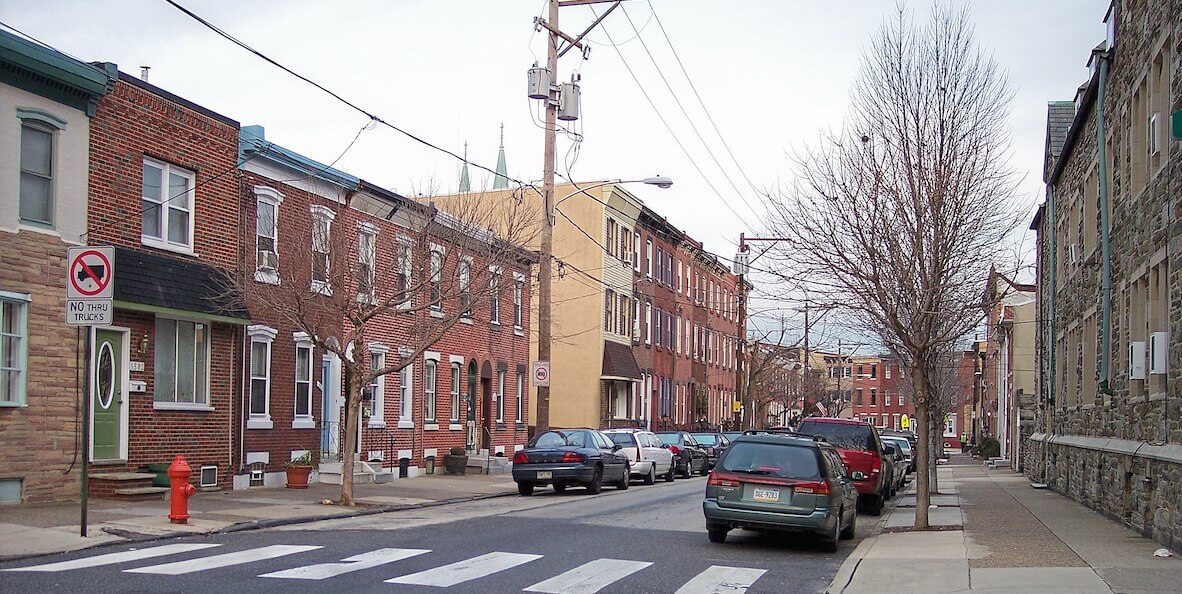On September 25, Philadelphia City Council announced that it will soon introduce a bill that would ban the pricing software landlords use to help price their Philadelphia apartments. While Council should be commended for taking the city’s housing crisis so seriously, its members should make certain that prohibiting the use of software to price rental units will not backfire, leading to higher housing prices and fewer properties for rent.
Rent inflation is indeed a significant issue in Philadelphia. Data released in late September from the Bureau of Labor and Statistics indicated that housing prices in the Philadelphia / Camden / Wilmington region have risen nearly 5 percent from their August 2023 levels. For comparison, the nation’s general inflation rate clocked in at less than half that. So, it shouldn’t surprise anyone why roughly half of the city’s residents spend 30 percent or more of their income on rent.
Councilmembers believe that landlords’ use of new algorithmic software is contributing to this affordability crisis by encouraging industry price-fixing among property managers. They contend that, because so many landlords are using the same software, the technology might be helping them to collude to keep costs high.
Philadelphia’s leaders know that more homes and units coming available is what is necessary to solve this affordable housing crisis.
Is illegal price fixing occurring? Without more data, I cannot say for certain. However, as an antitrust expert and a local law professor, what I can say is that companies use software algorithms like this for different reasons. A handful of them use it to engage in price fixing, but many others (including some state governments who use similar software to do congestion pricing on toll roads) use it to respond to supply and demand.
As a Nevada district court found last year in a similar case involving hotel chains, the law has to distinguish between software that facilitates price fixing and software that promotes efficiency. City Council should figure out what the case is here before deciding to enact legislation that bans such software.
Should Council find that property managers who subscribe to algorithmic pricing software have effectively agreed with one other to keep prices above a certain level, then banning this software is warranted.
However, in the absence of such an agreement among landlords, algorithmic pricing software might actually help the city develop more affordable housing by helping landlords better respond to market incentives.
Roughly half of the city’s residents spend 30 percent or more of their income on rent.
Philadelphia’s leaders know that more homes and units coming available is what is necessary to solve this affordable housing crisis. That is why Mayor Cherelle Parker has pledged to build 30,000 new affordable units as soon as possible. She knows that when housing supply goes up, prices come down.
However, recently, builders and landlords have watched their building expenses and property upkeep costs climb with inflation, interest rates and taxes, making it difficult for them to expand supply.
That’s where algorithmic pricing software can help. If used in good faith, this innovative pricing software could be what makes it possible for many property managers and developers to ensure they make enough of a profit to not only remain in business but to expand by offering more housing units in the city.
Having increased their housing supply and seen rents drop, states such as North Carolina and cities such as Minneapolis have shown that more units mean lower rents.
Again, Council is right to be wary of price fixing, and it should conduct a thorough investigation to ensure such collusion is not occurring. But Council should also recognize that algorithmic pricing, like many innovations, is neither automatically good or bad — and so Council should be wary of stymieing innovation that could help cure the very housing problem that animates Council.
The last thing Philadelphians need is a new barrier to obtaining affordable units. Here’s hoping Council does its homework before deciding to move forward on this bill.
Salil K. Mehra is a Professor of Law at Temple University. His research focuses on antitrust/competition law and technology.
The Citizen welcomes guest commentary from community members who represent that it is their own work and their own opinion based on true facts that they know firsthand.
![]() MORE HOUSING CRISIS COVERAGE FROM THE CITIZEN
MORE HOUSING CRISIS COVERAGE FROM THE CITIZEN



